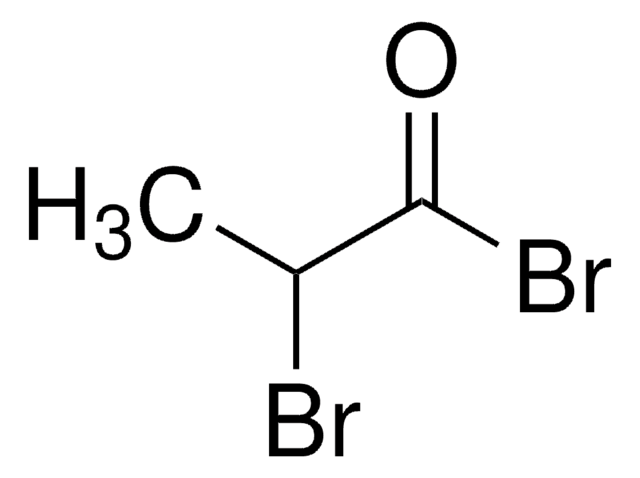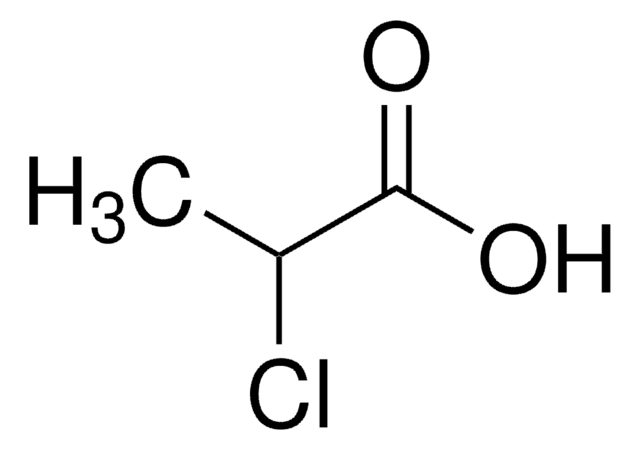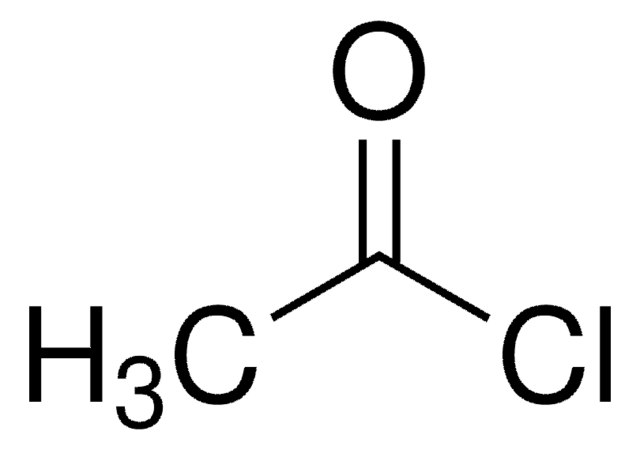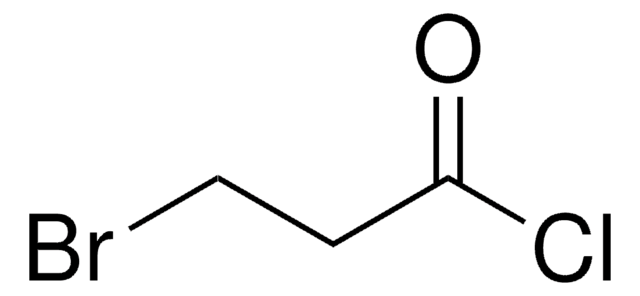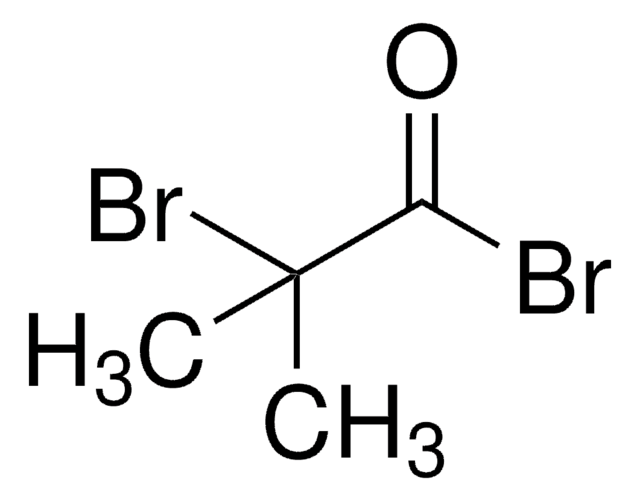All Photos(1)
About This Item
Linear Formula:
CH3CHClCOCl
CAS Number:
Molecular Weight:
126.97
Beilstein:
605452
EC Number:
MDL number:
UNSPSC Code:
12352100
PubChem Substance ID:
NACRES:
NA.22
Recommended Products
Quality Level
Assay
97%
form
liquid
refractive index
n20/D 1.440 (lit.)
bp
109-111 °C (lit.)
density
1.308 g/mL at 25 °C (lit.)
functional group
acyl chloride
chloro
SMILES string
CC(Cl)C(Cl)=O
InChI
1S/C3H4Cl2O/c1-2(4)3(5)6/h2H,1H3
InChI key
JEQDSBVHLKBEIZ-UHFFFAOYSA-N
Looking for similar products? Visit Product Comparison Guide
Application
2-Chloropropionyl chloride was used:
- as reagent in the chemical surface functionalization of parylene C
- in the preparation of a poly(ethylene glycol) macroinitiator, required for the atom transfer radical polymerization (ATRP) of styrene
- in the synthesis of (±)-mintlactone
- in the preparation of chlorine modified TiO2 nanoparticles, the ATRP initiators
Signal Word
Danger
Hazard Statements
Precautionary Statements
Hazard Classifications
Acute Tox. 4 Oral - Eye Irrit. 2 - Flam. Liq. 3 - Skin Corr. 1B
Storage Class Code
3 - Flammable liquids
WGK
WGK 3
Flash Point(F)
94.1 °F - DIN 51755 Part 1
Flash Point(C)
34.5 °C - DIN 51755 Part 1
Personal Protective Equipment
dust mask type N95 (US), Eyeshields, Gloves
Choose from one of the most recent versions:
Already Own This Product?
Find documentation for the products that you have recently purchased in the Document Library.
Controlled/?living? atom transfer radical polymerization of styrene in the synthesis of amphiphilic diblock copolymers from a poly (ethylene glycol) macroinitiator.
Jankova K, et al.
Polymer Bull., 42(2), 153-158 (1999)
A Facile Synthesis of (?)-Mintlactone.
Tanyeli C, et al.
Synthetic Communications, 27(19), 3471-3476 (1997)
Surface-initiated atom transfer radical polymerization from TiO2 nanoparticles.
Park JT, et al.
Applied Surface Science, 255(6), 3739-3744 (2009)
Paulin N Wahjudi et al.
Journal of biomedical materials research. Part A, 89(1), 206-214 (2008-04-24)
A general method for chemical surface functionalization of parylene C [PC, (para-CH2-C6H3Cl-CH2-)n] films is reported. Friedel-Crafts acylation is used to activate the surface of the PC film, and the resulting carbonyl groups are then used to form a range of
Wenbin Fan et al.
Biomaterials science, 7(6), 2421-2429 (2019-03-30)
The β-barrel structure of green fluorescent protein (GFP) provides a confined environment to enhance its fluorescence efficiency. Inspired by the unique structure of GFP, we reported a self-restricted GFP chromophore analogue which was rationally grafted onto the middle or the
Our team of scientists has experience in all areas of research including Life Science, Material Science, Chemical Synthesis, Chromatography, Analytical and many others.
Contact Technical Service